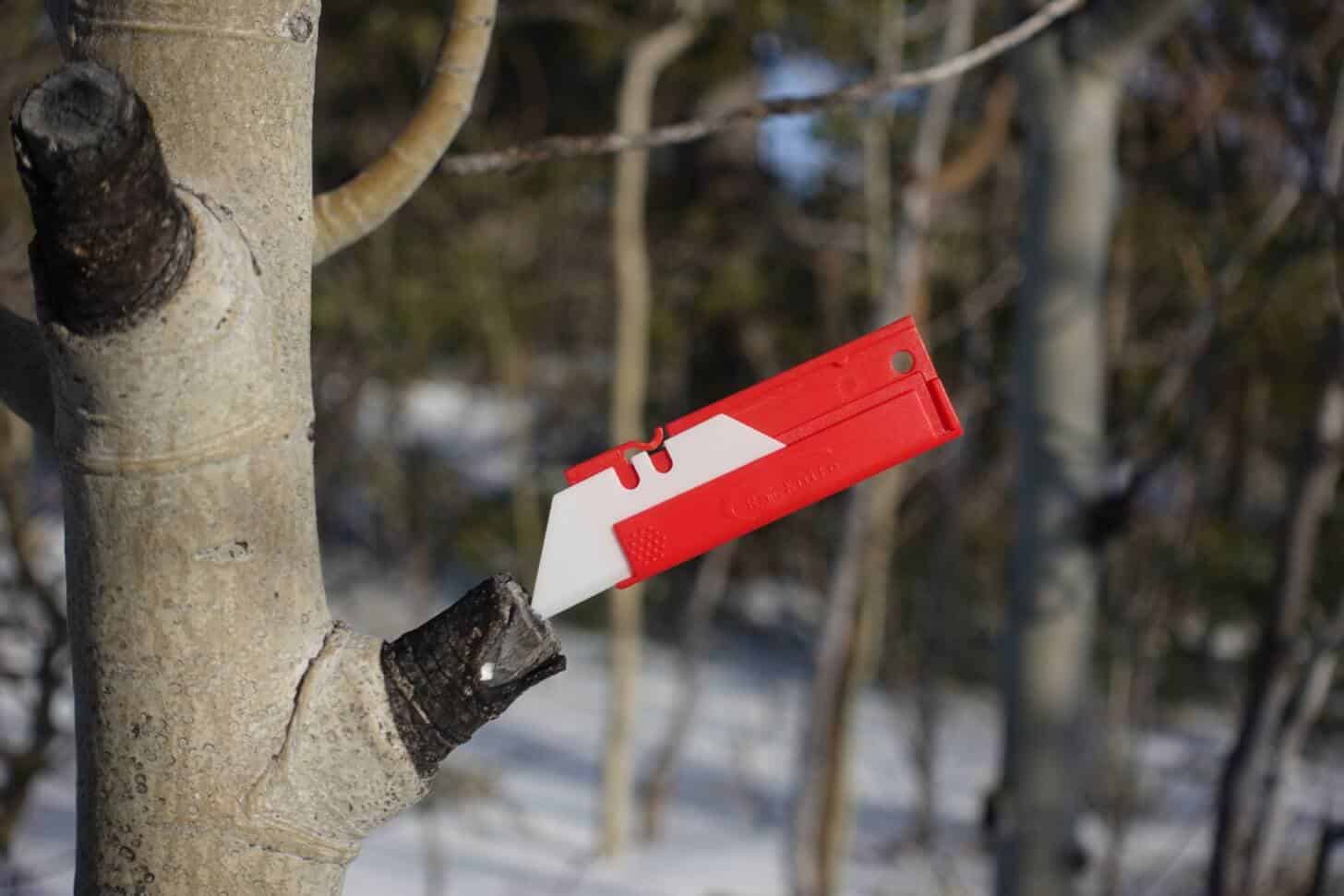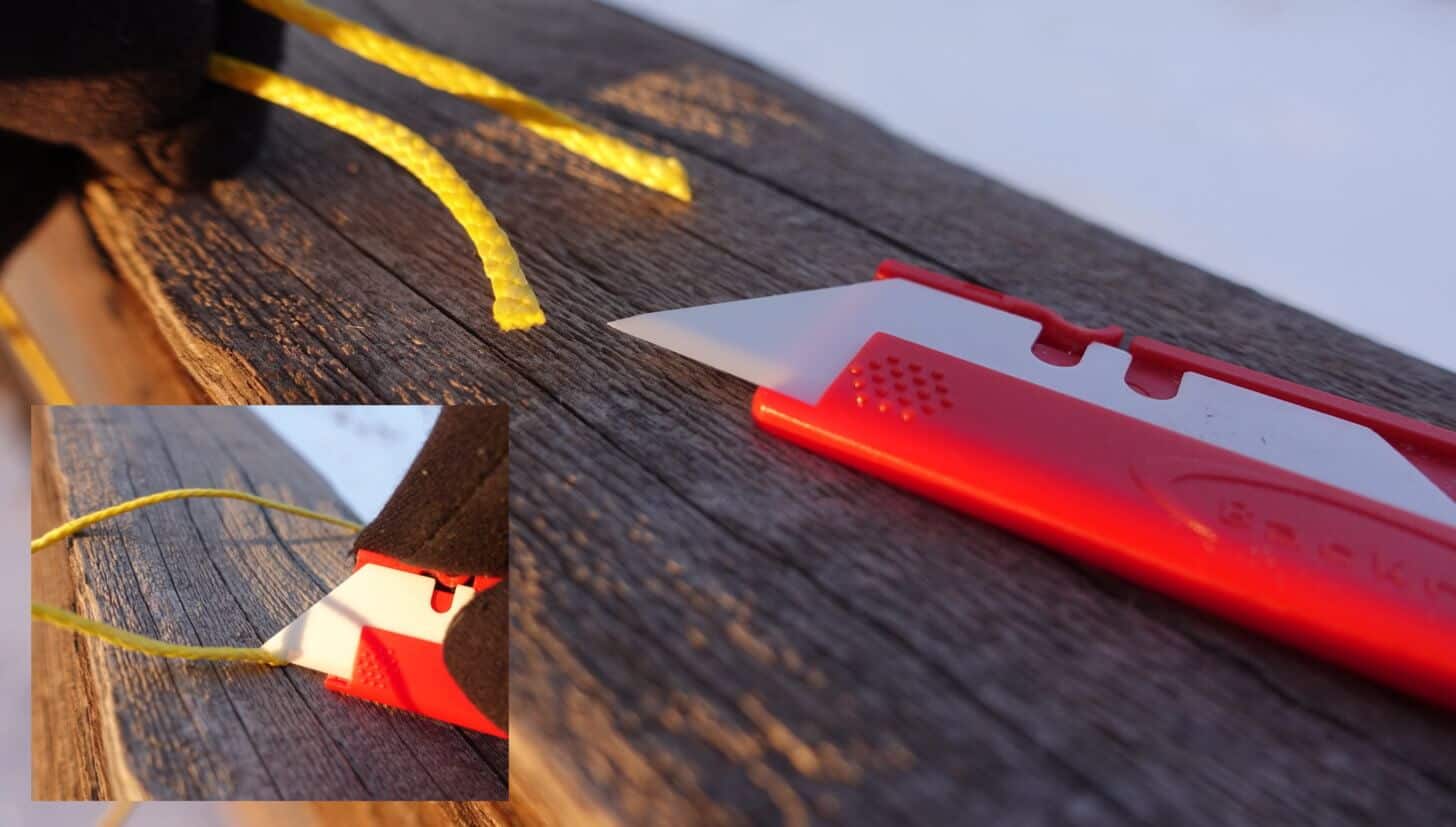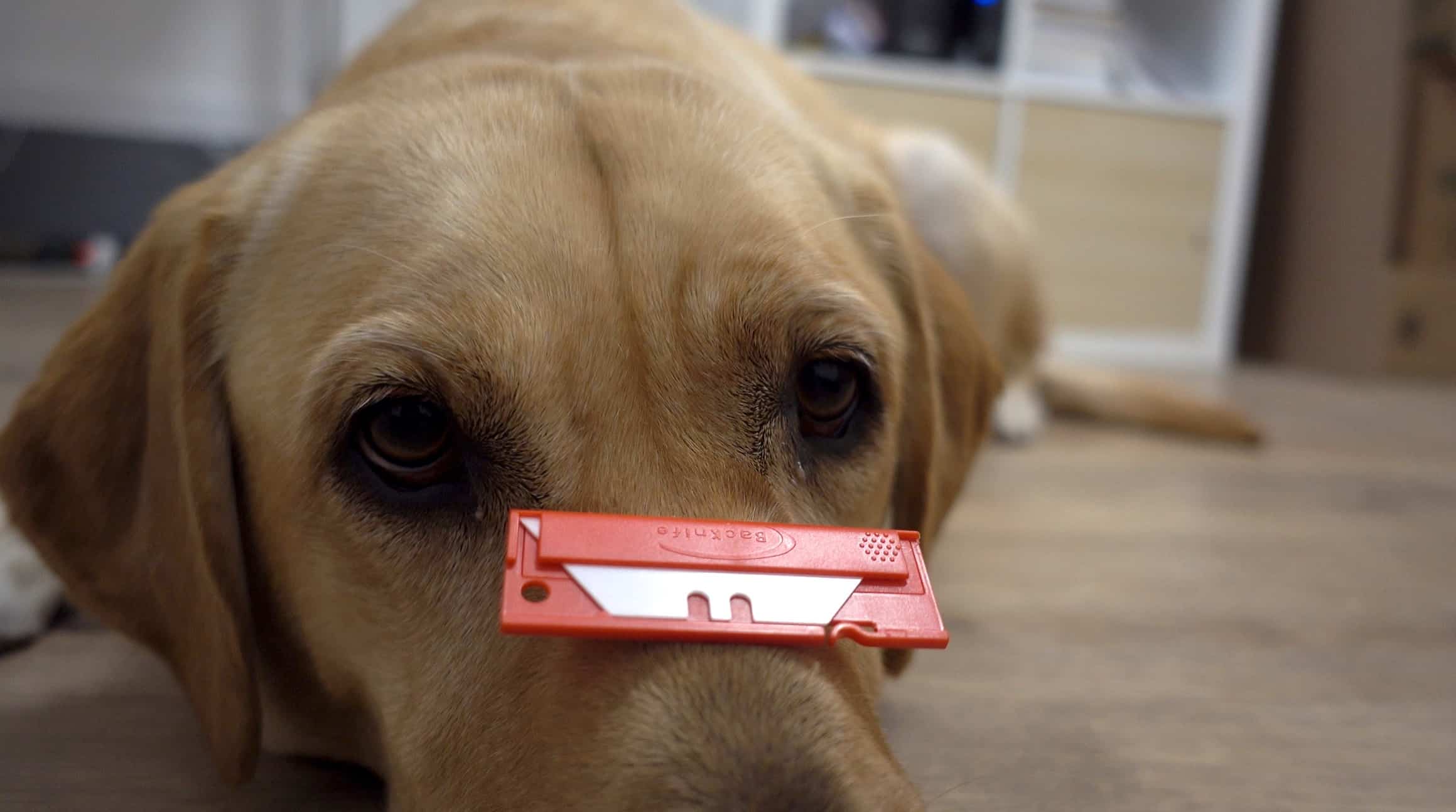
Introduction
Not all ultralight backpackers carry a knife on a routine basis (myself included). Carrying a knife seems extraneous to me. I seldom need one unless I’m cutting guylines, cleaning fish, repairing gear, striking a fire-starting flint, shaping first aid tape, opening a food package, slicing cheese, or whittling up a pile of dry wood shavings.
Oh, wait. That actually seems like quite a bit of utility, actually (sic).
OK, so I may actually find a knife to be useful after all.
But I’m not a knife guy.
Which is code for I have zero interest in spending exorbitant amounts of money on a knife I’ll probably lose.
My criteria for a good knife are simple:
- Sharp « so it cuts stuff;
- Light « duh;
- Small « so I can tuck it anywhere;
- Cheap « so I can spend more money on gas to the TH’s;
- Orange « so I don’t lose it!
Guess what, y’all – I found the perfect knife for me!

The Backnife Micro Utility Knife
Imagine a cutting tool that slices through Spectra cord like an as-seen-on-TV-tomato knife plowing through a pop can.
This is the idealized micro-Utopian vision of every ultralight backpacking enthusiast, and it’s the promise made by the Backnife Micro-Utility Knife.

Features & Specifications
- Stanley-style carpenter knife dimensions and a trapezoidal shape. Old school. #MAGA!
- Sharp! Blade made from zirconium dioxide ceramic. A material that sounds like a sound bite – it’s tweetable!
- Injection-molded plastic housing (2 pieces) assembled with electrosonic welding. Made in Canada!
- Adjustable blade length
- Light! Weight: 0.23 oz (6.5 g) (verified on a NIST*-certified scale; *NIST is an agency overseen by the POTUS – this weight is not Fake News!)
- Small! Dimensions: 2.5 in (64 mm) x 0.875 in (22 mm) x 0.14 in (3.5 mm). Will fit well in even the smallest hands!
- Cheap! Cost: ~USD$12 (includes shipping & handling). Affordable for all tax brackets!
- Orange! Color: Orange. A nice shade of orange, at that!

Commentary
This is the extent of my performance review:
I cut up a bunch of stuff.
First, paper #FTW!
Then, tape, cardboard, aluminum cans, and on to fabrics (silnylon, then spinnaker, then DCF pack fabric, then pure Spectra). By the time I reached the fabrics, the Backnife was still making clean cuts.
But then the real test: pure Spectra cord, which isn’t handled well by most steel knives. Plus, Spectra dulls steel like you wouldn’t believe. After about one hundred cuts of Spectra cord between 2 and 4 mm in diameter, the knife was still making clean cuts.
Maybe there’s something to this white blade and its ceramic nature.

How to Get Your Very Own Backnife
Visit their website.
Disclosure
I didn’t ask for this knife. I didn’t even realize I wanted it until I got it.
It wasn’t on my Christmas list, nobody bought it for me, and I’m not making (much) of a fortune by writing a good or bad review for it! In fact, if you end up buying a knife as a result of reading this review, Phil’s gonna get all the money. That’s pretty awesome for Phil.
I received the knife as an unsolicited package from knife-maker Phil Cressman, a Canadian. It was in a Tyvek envelope, which I thought was cool because it was Tyvek.
In a way, you could say it was a donation I suppose. But I had no obligation to review it.
I did think it was a really cool product because it weighs a quarter of an ounce and was designed with a lot of thought.
So there. Go buy one. Support Phil. He seems like a decent guy with a great beard. Also, he’s Canadian, and that has to count for a lot! Go Phil!
*Phil is not a family member, and he does not have any tight, loose, medium, or undisclosed financial interest in Backpackinglight.com, or Russia. (As far as we / Jeff / Robert can tell.)




Home › Forums › A Micro-Utility Knife: The Backnife Review